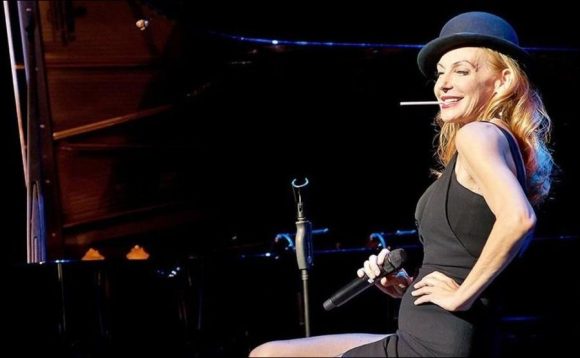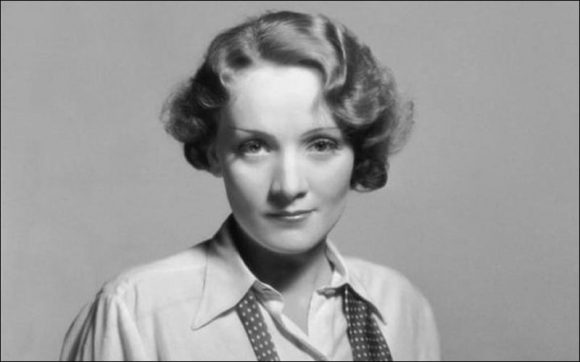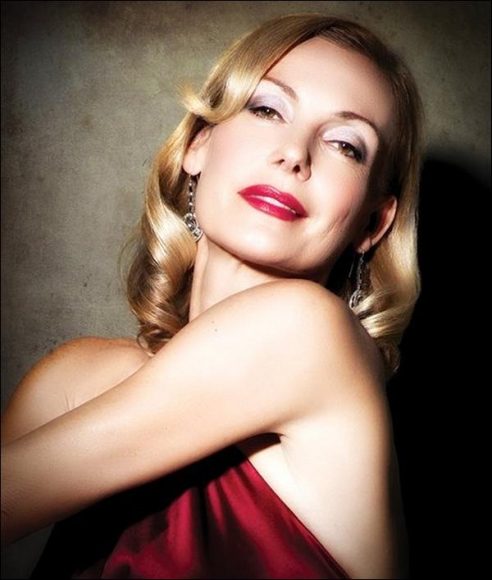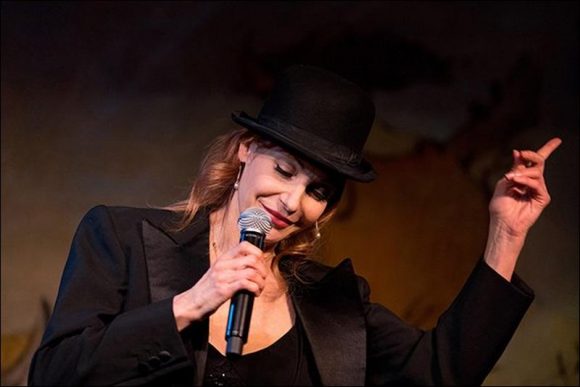Ute Lemper, one of the most important cabaret singers in the world, describes the life of Marlene Dietrich in her “Rendez-vous with Marlene”. Giving a pre-show interview, Lemper says about the legend: “Dietrich was morally and politically brave and straightforward. She represented a free woman; free-spirited, sexy, but still masculine and bisexual, strong, lady, and at the same time authoritarian.”
In 1988, just 32 years ago, Ute Lemper began to be compared to Marlene Dietrich, one of the most important stars in the world of cinema and music, while she was just beginning her career.
Lemper, who described this comparison with respect to Dietrich, wrote a letter to his master. After this letter, the couple telephoned and a 3-hour speech took place. That speech inspired the show “Rendez-vous with Marlene” by Lemper.
In this show, Ute Lemper tells the audience about Marlene Dietrich’s career, her love for the Poet Rilke, her sadness, her joys, and chapters from her life.

Was this project due to your admiration for Marlene Dietrich?
“Rendezvous With Marlene” means a lot to me. This album is my respect for the wonderful lady. This is the story I chose to tell about him and I want people to hear. Marlene has many portraits; but this comes from my heart. He describes his life through my filter and sings his songs in my voice.
Your show starts with a phone call. Can you talk a little bit about this talk?
I called Marlene one day and it all started after that conversation. I would like to be older when we make that phone call. Marlene asked me how old was I on the phone and was disappointed when I said I was 24. He’d rather be my age… A girlfriend. Sorry, I was not. Now I’m trying to be a good friend telling her stories. I absorbed his story and identified him. I never wanted to absorb this identity.
I’m ready, now. I got a little older… I have enough awareness about everything… Career, culture, love, children, passion, beauty, old age… And enough closeness to her dignity, class, play, sexuality, suffering, sadness, loneliness and hedonism… Checking her story It’s fun. This is the story. I wrote this game among memories, in treasures and with a lot of research and imagination and the most beautiful songs of Marlene.

Your life and ideas have passed many exams. Can you talk a little bit?
I grew up with the music of the 70s, Pink Floyd and The Beatles. I always had a wall and I was not compatible. So this last study smells too much Dietrich, right? Yes true. I was an Almand with a very complex history and relationship with my country. I was also a stranger who would never say the German National Deity. I had great anger and fear about Nazi Germany and of course the history of genocide. Since I am married to a New York Jew, I have a lot to separate myself from my country. Feeling such things hurts. I feel like I don’t belong where I was born or I can’t belong.
What do you think about Nazi Germany?
I can’t escape this heritage, so I embrace it. It is my duty to develop the dialogue about the past, the Jewish Genocide, and the Second World War. It is also my duty to show the incredible culture and aesthetics that have ruled over the centuries that make up Germany. I feel a great responsibility, a great pain and a love when describing my German journey throughout life.

In this show, you’re telling Marlene. Is there more Marlene Dietrich here or Ute Lemper?
There’s Marlene from Ute’s viewfinder. I’m not sure if Marlene has any influence, or maybe my personal aesthetics made me look like Marlene in the photos. I liked a classy, seductive, powerful and mysterious ‘aura’. I have always been drawn to the Art Nouveau, Film Noir, and shadows that determine the light. Dietrich’s style is classy but also very polite.
She was morally and politically brave and straightforward. She represented the free woman; free spirited, sexy, but still masculine and bisexual, strong, lady, and simultaneously domineering. She had an open marriage and was very matched… Marlene chose to join the US army and entertain the soldiers to give morale during World War II. Yes, she loved thousands of men / soldiers around him, but she also risked her life. He admitted that he was afraid of getting caught. After her death, the Berlin Wall collapsed.
Views: 288



